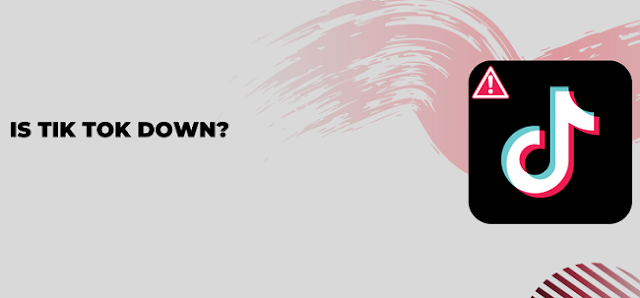The hashtag #tiktokdown has been trending recently, and for good reason. TikTok, the popular social media platform known for its short-form videos, experienced a widespread outage that left users unable to access the app for several hours.
While TikTok has had its fair share of controversies and criticisms, such as concerns over data privacy and censorship, it's hard to deny the impact it has had on the social media landscape. The app has become a cultural phenomenon, with viral dances, challenges, and memes spreading rapidly across the platform and beyond.
So when TikTok suddenly went down, users were understandably frustrated and concerned. Many took to Twitter to express their frustration and speculate about what caused the outage. Some even joked about the possibility of TikTok being banned altogether, a reference to the ongoing debate over the app's legality in some countries.
But beyond the jokes and speculation, the #tiktokdown incident raises some important questions about our reliance on social media and the potential consequences of a platform going offline. For many people, TikTok is not just a source of entertainment, but a way to connect with others and express themselves creatively. So when that platform is suddenly taken away, it can have a real impact on their lives.
Of course, it's important to keep things in perspective. A temporary outage of a social media app is hardly a catastrophic event. But it does serve as a reminder of the power and influence that these platforms have in our lives, and the need to approach them with a critical eye.
As TikTok and other social media platforms continue to evolve and grow, it's up to us as users to stay informed and engaged. We should be aware of the potential risks and drawbacks of these platforms, while also recognizing the ways in which they can bring people together and foster creativity and expression. And when an outage like #tiktokdown occurs, we can take the opportunity to reflect on our relationship with social media and how we can use it in a healthy and productive way.
The #tiktokdown incident also highlights the importance of having backup plans and alternative forms of communication. While social media platforms can be an incredibly powerful tool for staying connected with others, they are by no means the only option. Phone calls, text messages, and even face-to-face interactions can all be effective ways of staying in touch with friends and loved ones.
Additionally, #tiktokdown raises questions about the reliability and stability of social media platforms. As these platforms become more and more central to our lives, we need to ensure that they are equipped to handle the demands placed on them. This means investing in robust infrastructure and contingency plans to prevent and mitigate downtime.
Finally, the #tiktokdown incident underscores the importance
of transparency and communication from social media companies. When an outage
occurs, users want to know what's happening and what's being done to address
the issue. Clear and timely communication can help to alleviate frustration and
anxiety, and build trust between users and platforms.
In conclusion
while the #tiktokdown incident may seem like
a minor blip in the grand scheme of things, it serves as a powerful reminder of
the role that social media plays in our lives, and the need to approach these
platforms with thoughtfulness and care. By staying informed, maintaining
healthy habits around social media use, and advocating for transparency and
reliability from social media companies, we can ensure that these platforms
continue to enrich our lives in positive ways.
